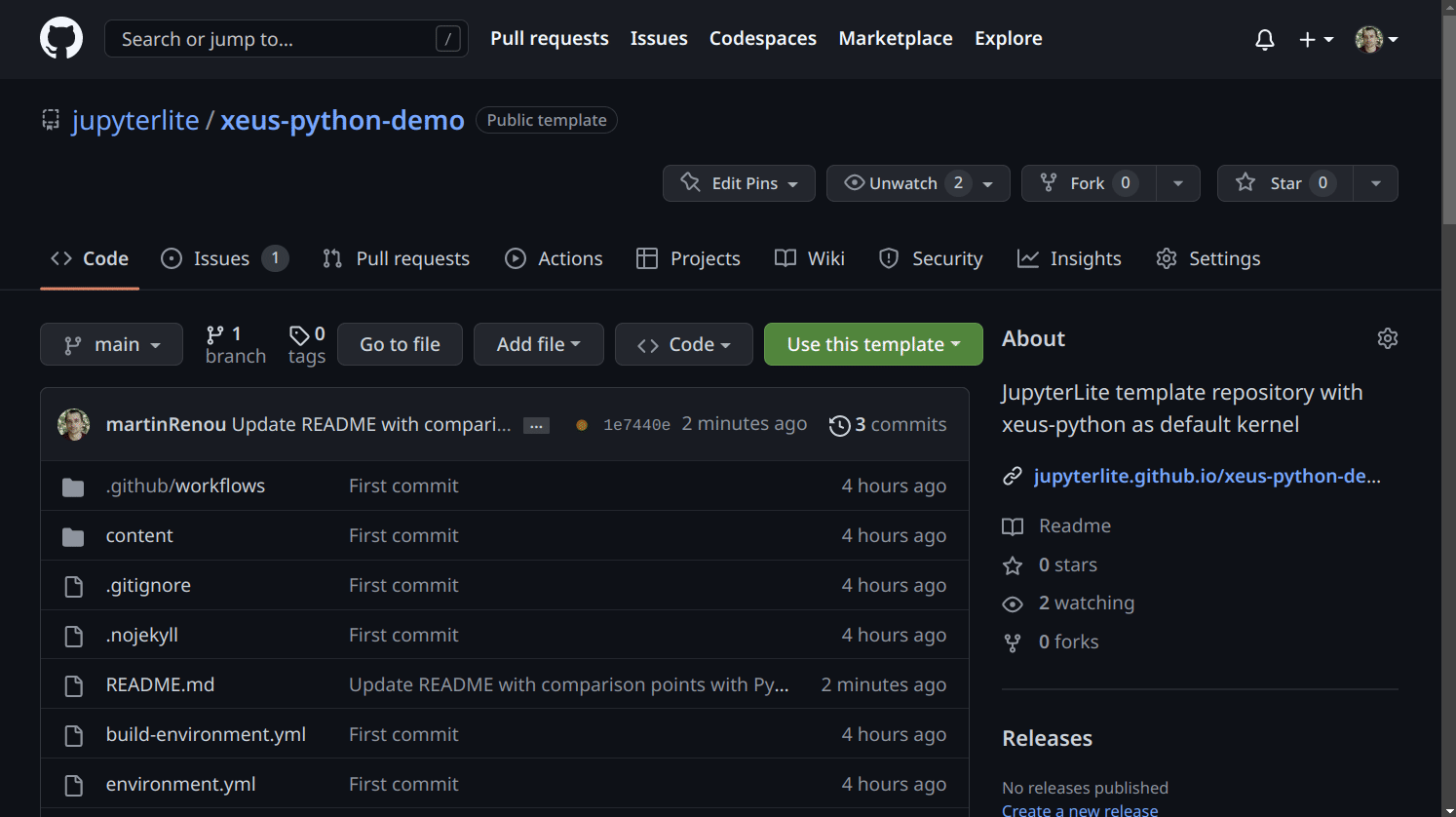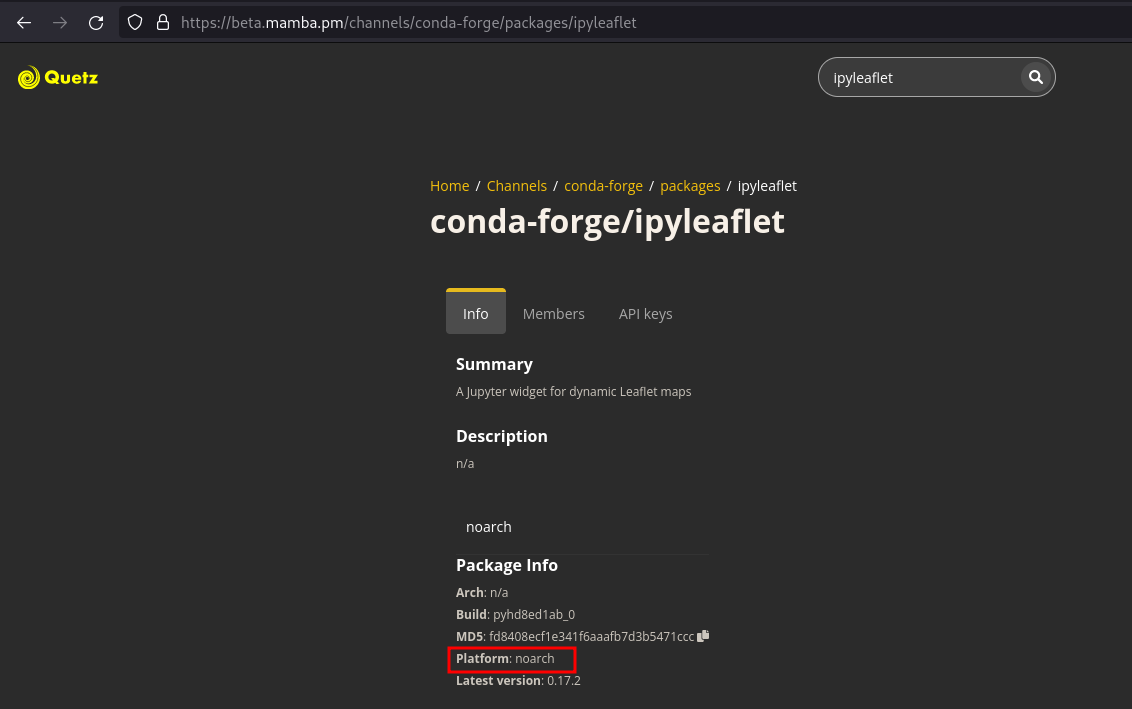thunderpy
Xeus-Lite demo
This GitHub template allows you to create deployments of JupyterLite with a custom set of conda packages.
💡 How to make your own deployment
Creating a new deployment can be done in three easy steps:
Step 1: Apply the GitHub template
- Click the “Use this template” button in the upper right corner of the GitHub repository.
- Choose a name for your project and select the GitHub organization where you want to create it.
- Then hit “Create repository from template” to finalize the setup.
Step 2: Enable building the GitHub pages from GitHub actions.
- Once your repository is created, enable GitHub Pages by configuring GitHub Actions. This will build and deploy your site automatically.
- Your deployment will be accessible at the following URL: https://{USERNAME}.github.io/{DEMO_REPO_NAME}.
Step 3: Customize your conda environment
- Update your
environment.ymlfile to include the required packages. - This ensures that your environment has all the necessary dependencies.
🎬 Visual Guide
For a step-by-step visual guide, check out the screencast below:

📦 How to install kernels and packages
You can install specific kernels and extra packages by adding them to the environment.yml file.
Example: JupyterLite with NumPy and Matplotlib
To create a JupyterLite deployment with NumPy and Matplotlib pre-installed, edit the environment.yml file as follows:
name: xeus-kernel
channels:
- https://repo.mamba.pm/emscripten-forge
- conda-forge
dependencies:
- xeus-python
- numpy
- matplotlib
Example: JupyterLite with R and coursekata
To use the R kernel and the coursekata package, edit the environment.yml file as follows:
name: xeus-kernel
channels:
- https://repo.mamba.pm/emscripten-forge
- conda-forge
dependencies:
- xeus-r
- r-coursekata
Package Compatibility
Only no-arch packages from conda-forge and packages from emscripten-forge can be installed.
-
How do I know if a package is
no-archonconda-forge?no-archmeans that the package is OS-independent, usually pure-python packages areno-arch. To check if your package isno-archonconda-forge, check if the “Platform” entry is “no-arch” in the https://beta.mamba.pm/channels/conda-forge?tab=packages page. If your package is notno-archbut is a pure Python package, then you should probably update the feedstock to turn your package into ano-archone.
-
How do I know if my package is on
emscripten-forge? You can see the list of packages pubished onemscripten-forgehere. In case your package is missing, or it’s not up-to-date, feel free to open an issue or a PR on https://github.com/emscripten-forge/recipes.